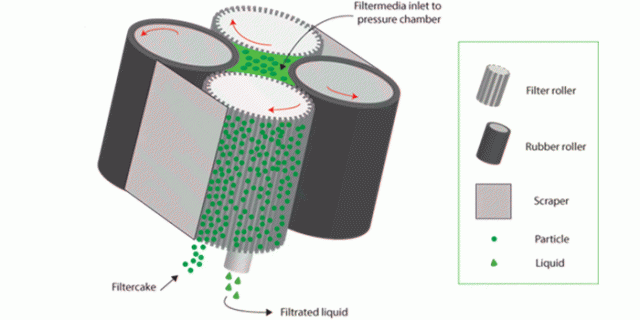Employees of DTU (Technical University of Denmark) Brewery have developed a compact filter that can be used to utilize nutrients in the by-product spent grain in an economically viable way.
While the idea of utilizing spent grain in food production is not new, it has not been economically viable to dry the spent grain.
Spent grain contains both lots of fiber and approximately 6% of the amount of protein present in the raw materials – protein which, if extracted, can be used in the production of e.g. fortified foods.
The newly developed technology makes it possible to gently and inexpensively separate the spent grain via filtration and simultaneous compaction into a liquid fraction and a solid substance.
Subsequently, the solid substance is dried or acidified while the liquid fraction is pasteurized or acidified in order to obtain a longer shelf life, or it is used in the production of light beer or directly in food production.
Once the spent grain has been dried or acidified, the fibrous substance can for example be used in bread to improve fiber content.
Sediment in the liquid which contains proteins, sugar and antioxidants can be separated in a centrifuge and then be used to enrich dairy products and protein drinks.
The price of dried spent grain is about US1 per kg, while the sediment can fetch about US$6 per kg.
A company called Dacofi is working to identify ways to increase the value of both the liquid and the solid parts.
The compact filter is scalable up to 30 m3 per hour, enabling companies of various sizes to use the technology.
A Swedish business has already purchased a license for the technology and is now selling the compact filter to companies that want to utilize the by-product potato pulp, which is generated during potato flour production.
Dacofi is constantly trying to develop the machine so that it can be used for other fiber-containing substances, such as fruit pressing.
Tests have so far shown that the machine can remove 80% of the juice from a pear, but the company expects that the result can be improved with some adjustments to the machinery.










